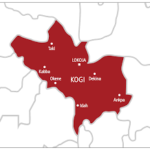Daily Trust examines the cries of the provosts and the implications of the alleged de-listing on the colleges.
Colleges of Arabic and Islamic Legal Studies were established across the 19 northern states to produce middle level manpower and award diploma certificates in the fields of Arabic and Islamic Studies, as well as Law. Over the years, the colleges have expanded their scope and offered courses in the Arts/Humanities including Mass Communication, History, English, among others.
The colleges provide foundation for students who have concluded post-primary education and also fill the vacuum created by inadequate spaces at universities, polytechnics and colleges of education amidst the soaring number of admission seekers.
And true to their objectives, the colleges have churned out graduates who rode on the crest of the training received at the colleges to attain great heights in their tertiary education pursuits and start blossoming careers in their respective fields.
However, the institutions are currently in distress over the alleged de-listing of the colleges and other monotechnics from the list of beneficiaries of TETfund, a federal government intervention project set up under the Ministry of Education to provide funding support for tertiary institutions in Nigeria.
TETfund which used to be the Education Trust Fund (ETF), was recently reformed for a more efficient performance in addressing infrastructural deficit in the tertiary education sub-sector.
Unfortunately, with the metamorphosis of ETF to TETfund, the Colleges of Islamic and Legal Studies were delisted from the beneficiaries’ list, prompting provosts of the institutions to raise eyebrows and call on the appropriate authorities to intervene.
The immediate past provost of Kwara State College of Arabic and Islamic Legal Studies in Ilorin, Dr. Abdus-Semi’i Arikewuyo, was first to raise the issue of exclusion of the colleges from those accessing TETfund intervention during the 20th anniversary celebration of the institution.
He said: “It is rather unfortunate that all the monotechnic institutions in Nigeria (CAILS inclusive) are already being delisted on the scheme. It must be said that this is frightening and indeed threatening.”
However, provosts of the institutions in Nigeria converged on CAILS last week under the aegis of Conference of Provosts of Colleges of Legal and Islamic Studies in Nigeria for its 34th regular meeting hosted by the college.
The host provost, Dr. Musa Abdullahi, recalled that the conference under its pioneer leadership fought hard to get the colleges as beneficiaries of the Education Trust Fund (ETF)/TETFUND.
“It is however sad to note that TETFUND had de-listed the institutions from its beneficiaries despite the fact that all colleges meet the required standard academically to enjoy the benefits,” he said.
Provost of the college of Islamic and Legal studies Ringim, Jigawa State, Dr. Abbas A. Abbas, who spoke on behalf of the conference leadership called on Governor Abdulfatah Ahmed and other Northern governors to interface with the appropriate agencies to restore the TETFUND intervention.
“We don’t know why our institutions were expunged or removed completely from TETFUND. Kwara governor should intervene because if you look at it, 40 per cent of structures in this college and other colleges were built from TETFUND,” he said.
Also, the Provost of College of Legal Studies, Yola, Barrister Mohammed Modibbo, lamented that the de-listing of the colleges from the beneficiaries of TETfund would have serious negative impact on the running of the colleges. He stated that the colleges’ role in providing a foundation for students should not be undermined.
“Like in my college now, I would be admitting 1,700 students studying different courses like Law, Computer Science, Criminology and Security Studies, Education courses, among others. We are the only colleges that offer these courses at diploma level. So, why excluding us from benefitting from TETfund,” he said.
Dr. Rabi’u R. Kurfi, Provost of Yusuf Bala Usman College of Legal and Islamic Studies, Daura in Katsina State, said the de-listing of this particular category of colleges from the TETFUND’s intervention is greatly affecting the progress of the institutions.
“Most of these colleges are largely depending on the little revenue they are generating and the interventions from the governors of their respective states. Most of the colleges cannot afford to sponsor lecturers to foreign courses and without the support of state governments, they cannot run some programmes,” he lamented.
He said “Most of our facilities in this college are provided by Katsina State government. We need federal government intervention here because we have a lot of projects to execute so the TETFUND should rethink about our fate. Colleges of Islamic Studies have their significance in the education sector like those that are presently benefiting from the fund’s interventions.”
He said most of the delisted institutions have a lot of programmes and projects to implement but could not do so due to insufficient fund at their disposal, stressing that “until government reviews this policy this category of institutions will continue to suffer.”
Dr. Kurfi therefore appealed to President Muhammad Buhari to, in the interest of justice and equity, look into the issue with a view to addressing the problem once and for all.
However, according to the TETFUND’s new act, the delisting is as a result of the new Act governing TETfund. The agency was formally Education Trust Fund (ETF) which covers all sectors of education before the Act was amended in 2011to Tertiary Education Trust Fund.
After the amendment, the fund was charged with the responsibility of imposing, managing and disbursing the education tax to only public tertiary education institutions in the country. Any institution that is not under Education is not covered in the Act.
As contained in the Act No. 16 of 2011, in management and administration of the fund, the board of trustees shall administer the tax imposed by the act and disburse the amount in the fund to federal and state tertiary educational institutions.
It further states that the distribution of the fund shall be in the ratio of 2:1:1 as between universities, polytechnics and Colleges of Education.
It also noted that the board can give due consideration to the peculiarities of each geo-political zone in the disbursement of the tax between the various levels of tertiary education.
Daily Trust’s visit to TETfund to get the reaction of the Executive Secretary, Professor Suleiman Elias Bogoro, did not yield any result as he was not on seat and no personnel of the agency could comment on his behalf.
As provosts protest de-listing from TETfund
Daily Trust examines the cries of the provosts and the implications of the alleged de-listing on the colleges. Colleges of Arabic and Islamic Legal Studies…
LEARN AFFILIATE MARKETING: Learn How to Make Money with Expertnaire Affiliate Marketing Using the Simple 3-Step Method Explained to earn $500-$1000 Per Month.
Click here to learn more.
AMAZON KDP PUBLISHING: Make $1000-$5000+ Monthly Selling Books On Amazon Even If You Are Not A Writer! Using Your Mobile Phone or Laptop.
Click here to learn more.
GHOSTWRITING SERVICES: Learn How to Make Money As a Ghostwriter $1000 or more monthly: Insider Tips to Get Started. Click here to learn more.
Click here to learn more.
SECRET OF EARNING IN CRYPTO: Discover the Secrets of Earning $100 - $2000 Every Week With Crypto & DeFi Jobs.
Click here to learn more.



